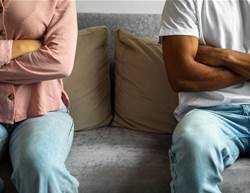Moving to a new area often means leaving behind your closest friends and family. And if you’ve landed in a new neighbourhood without knowing anyone, it can feel especially isolating. Learning how to make friends in a new place can boost not just your social life but also your overall wellbeing.
Still, making new connections can be daunting. “It’s scary to put yourself out there because it’s a risk—and we fear rejection,” says relationship therapist Erica Turner. “Humans are wired to bond, connect, and feel part of a group. Ancestrally, being accepted by the group ensured our survival, so rejection can trigger a primal fear of being cast out.”
We asked experts how to make new friends—especially as an adult—and why those connections matter so much.
How to make friends in a new city
Be intentional.
Strong social bonds are essential for your mental and physical health, says physician, neuroscientist, and author Dr Carl Marci. “We are wired to connect, and friendships make us happier and healthier in the long run—that should be a powerful motivator to push through the nerves around meeting new people,” he says.
Spend time where social people gather.
This could mean joining a local class, attending a group fitness session, or volunteering for a community organisation, says Dr Marci. “Choose something you genuinely enjoy doing—it’ll boost your chances of meeting people who share your interests.”
Be a good listener.
Once you’ve made a connection, take the time to really listen and show curiosity about the other person, Dr Marci says. “Most people enjoy talking about themselves, so make an effort to follow up and keep the conversation going.” A simple message like “thanks again” or “I had a great time—let’s catch up soon” can go a long way in building a lasting connection.
Avoid distractions and don’t dive in too deep too soon.
Put the phone away and stay present. “Don’t let your smartphone steal your attention, and avoid focusing too much on yourself or sharing negative experiences right away,” says Dr Marci. “There’ll be time to open up later, but it’s important to build rapport and ease into deeper conversations.”
Friendships take time to grow. “If it’s a genuine connection, you’ll both feel more comfortable sharing personal details down the track,” Dr Marci adds.
And if things don’t click immediately, don’t view it as a failure. “Every misstep is a chance to reflect on what you value in a friend and learn more about yourself,” he says.
Still unsure where to start? Try one of these ideas:
-
Join a fitness studio or class at the same time each week so you start seeing familiar faces, suggests Turner.
-
Find social groups and events that match your hobbies.
-
Sign up for your local sports league—think netball, pickleball or even mixed touch footy.
-
Volunteer with a cause that matters to you. It’s a great way to meet like-minded people.
-
Try a friendship app. There are plenty of others out there looking to connect.
-
If you’re a parent, strike up a chat with other parents at the playground, school pick-up, or weekend sport.
-
Just moved into a new building? See if they run social events.
-
Book clubs, art classes or cooking workshops are also great for meeting people in a relaxed setting.
Why it matters to make friends where you live
Friendships do more than fill your social calendar—they’re essential for your health and happiness. “Strong social bonds support us through good times and tough ones,” says Dr Marci. “They also protect us from loneliness, which can have real health consequences.”
Feeling lonely isn’t just unpleasant—it activates a stress response in your brain and body. “It signals that something’s off,” Dr Marci explains. “And if that imbalance continues, it can put strain on your heart, affect your brain, and chip away at your wellbeing over time.”
Plenty of research backs this up. One of the world’s longest-running studies on human happiness found that strong relationships are a key predictor of long-term health and life satisfaction.
The takeaway? Making new friends isn’t just about company. It’s one of the best things you can do for your mental and physical health. So say yes to that coffee, join the group class, or start a chat with your neighbour.










